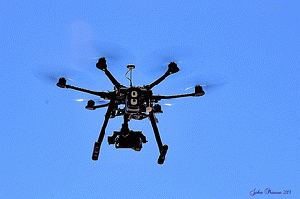They also demanded other records relating to the shooting of Ibragim Todashev by the FBI in his Florida home in May 2013.
The complaint states the ACLU first attempted to obtain the documents through Freedom of Information Act requests (FOIA), which were ignored with respect to the JTTF records, and denied with regard to the Todashev documentation. At the time of the request in December 2013, the government claimed the release of Todashev's records would potentially compromise the on-going investigation into his death.
According to the ACLU, as the results of the Todashev investigation have since been made public, it believes the government no longer has grounds to refuse access to records in the case.
One aspect of Todashev's case that may be of particular interest to an organization such as the ACLU concerns the level and methods of surveillance placed on him, in the month prior to his death.
Over the next four weeks he was subjected to continual phone calls from Federal agents, and was interrogated several times, often for many hours at the FBI's local Florida office. This pattern was repeated with Todashev's girlfriend, Tatiana Gruzdeva, his estranged wife Reni Manukya, and several of his friends and aquaintances.
The Bureau also placed him under intensive round-the-clock surveillance: a situation of which Todashev himself was well aware.
His girlfriend Tatiana Gruzdeva stated:
He revealed that when Todashev became involved in an altercation in a carpark (he allegedly knocked another man unconcious), the incident was filmed from above with the use of an Unmanned Aerial Vehicle (UVA), or drone, whilst officers monitoring from the ground looked on and did nothing.
Regardless of the agents' reasons for inaction, this new detail is important as it leads to an inevitable question. Why was Todashev subject to one of the FBI's most secretive and highly criticized methods of surveillance?
The Bureau barely even acknowleged the existence of its drone program until very recently. It's considered particularly controversial, not least because of the widespread concerns it violates fourth amendment rights. The FBI believes it can conduct drone surveillance without the nuisance of obtaining warrants, and has done so on every mission it has ever flown.
He attempted to allay concerns about the program by insisting the Bureau's drone use is exclusive, stating that:
'our footprint is very small, we have very few and of limited use'
Mueller refused to provide details about the Bureau's operational protocols on the use of drones, how many/what types of unmanned aerial vehicles (UAVs) are actually in its possession, or the true cost of the program thus far.
However, on October 30 2013, the U.S. District Court in D.C. ordered the FBI to release its drone documents on a rolling basis to Citizens for Ethics and Responsibility in Washington (CREW), who had submitted a Freedom of Information Act request following Mueller's admission. The documents contained high levels of redactions, but appeared to confirm the ex-Director's previous statement on the limited use of drones.
One of those documents was a letter the Bureau had sent to Senator Rand Paul in July 2013, in response to concerns over drone use.
(Note: You can view every article as one long page if you sign up as an Advocate Member, or higher).






